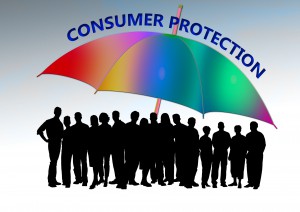“Consumerism” can have many meanings, but each person in an economy is a “Consumer” – someone who buys and uses goods and services. As the world’s economy grows, each person is involved in more, and bigger, transactions, and so the rights and responsibilities of being a well-education consumer are more important now than ever before.
What are Consumers?
If you buy something and use it, you are a consumer. If you make and sell something, you are a producer. Of course, most people are both – working as producers and consumers. Just like a business has certain responsibilities and business practices they need to keep in mind, consumers have certain responsibilities as well in order to make sure they are not being taken advantage of.
Consumer Rights
 Each consumer has certain rights to ensure they get a fair deal. The most fundamental consumer right is the right to complain. This may not sound important, but it can have a much bigger impact that you would expect.
Each consumer has certain rights to ensure they get a fair deal. The most fundamental consumer right is the right to complain. This may not sound important, but it can have a much bigger impact that you would expect.
Implied Rights
If you buy something from a shop and you take it home to find it does not work, for example, you have the right to go back to the store and ask for a replacement. Unless you have a warranty, the store may not be obligated to give you a free replacement, but (generally speaking) businesses prefer to keep their customers happy. You can always escalate issues through salespeople and managers if you feel your issue is not being taken seriously at lower levels. You also have the right to leave negative feedback and reviews on review websites. Again, this might seem like a small consolation, but companies (especially those doing business online) rely heavily on positive customer reviews, so this can end up having a larger impact.
If you can demonstrate that the business willingly sold you something broken or defective, it may also be considered fraud. Fraudulent business practices have their own set of consequences and regulations.
Explicit Rights
Explicit Rights are more options you have guaranteed by a contract or by law.
Warranty
A “Warranty” is typically a part of the sales agreement where the seller promises that what is being sold is free of defect. If you have a warranty, along with a proof-of-purchase (including a receipt), you may be able to explicitly request the seller fulfill the terms of the warranty by offering repair or replacement. If they refuse, you have further legal right to sue in a small-claims court.
Legal Obligations
Several types of purchases have even more consumer protections by law. These include:
- Car sales – These are generally state-by-state, so you will have to check with your state’s consumer protection office to find out your explicit protections.
- Phone, Television, and Other Utilities – Public utilities have strict regulations over billing and service requirements. If you think that your utility provider is not fulfilling their obligations, you can contact your local franchising authority, the FCC, or even the Public Utility Commission.
- Banks and Lending – The banking industry likely has the strongest consumer protections in the United States, governed by several authorities. If you have a consumer dispute with a bank that cannot be handled by simply talking with the manager, visit the USA.gov resource center for more options.
- Airports – Each person has certain rights when travelling, including protections against discrimination, safety, and security at an airport. After you reach your destination, there are further protections for hotel stays (for example, if you get Bed Bugs, you may be entitled to compensation). Like banks, each of these are independently regulated, so you can visit the USA.gov resource center for more information.
- Housing – Each person has many rights to housing, at every level of government (local, state, and federal). This includes protection from discrimination, and in some cases controls on how high the rent can be raised per year.
If you believe you have a consumer complaint, the most important documentations you should keep are your receipts. Generally speaking, regulatory agencies also require you to try to resolve any issue directly with the business before they will get involved, so you should also send the business your complaint in writing before trying to get additional help.
If you do need more help, the best places to start is the Consumer Complains Resource Center at USA.gov, and the Better Business Bureau.
Consumer Responsibilities
 Consumers do not have a huge amount of implied protections. This is, in part, because business law is centered on the “Reasonable Person“.
Consumers do not have a huge amount of implied protections. This is, in part, because business law is centered on the “Reasonable Person“.
This means that as far as the law is concerned, consumers must be behaving in a reasonably prudent manner – this means putting some thought into each purchase to make sure it is what they really want to do. If, for example, you spend $9,000 on an iPhone game before you realized how much you were losing, you will not have many legal protections (unless you can demonstrate that the game was fraudulent in some way). Consumer protections are not designed to prevent consumers from making bad decisions.
It is the duty of every consumer to make rational, reasonable choices when choosing their consumption. The easiest way to do this is to build a Spending Plan, and stick with it. To make sure you have all the tools you need to make a complaint if you need to, always keep detailed financial records.
